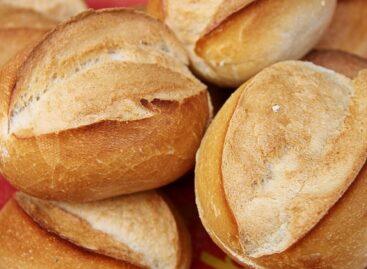Blue Planet: food waste should be utilized as biogas or feed raw material even in the short term
Food waste should be utilized as biogas or feed raw material in the short term, said former President János Áder in the latest episode of his Blue Planet podcast, published on Monday and also available on the YouTube video sharing portal.
 The chairman of the board of trustees of the Blue Planet Climate Protection Foundation spoke with Rajmond Percze, co-founder and CEO of Agroloop Hungary Kft., in the factory hall of the insect protein production company, about how the domestic and European food supply chain could be made more sustainable on the feed side by using insect proteins.
The chairman of the board of trustees of the Blue Planet Climate Protection Foundation spoke with Rajmond Percze, co-founder and CEO of Agroloop Hungary Kft., in the factory hall of the insect protein production company, about how the domestic and European food supply chain could be made more sustainable on the feed side by using insect proteins.
The company manager said that they keep black soldier fly larvae as farm animals, and therefore can only feed them with feed industry-certified material, even though the industry’s goal is to work with the lowest quality raw materials possible, because insects are able to eat and process practically all organic materials.
He believed that the next big step for the industry would be to feed the larvae with food waste.
In response, János Áder said: In Hungary, 30 percent of food is thrown away, and in the European Union the ratio is even worse, meaning that there would be plenty of raw materials.
He pointed out that the next goal is to utilize not only by-products from the milling or brewing industries, but also discarded food as raw materials, so that when it ends up in a landfill, it does not produce greenhouse gases, such as methane.
The former president of the republic emphasized that the current legislation does not provide an opportunity for this, so they will have to be created sooner or later, and this will also require a kind of lobbying with the European Union.
Rajmond Percze explained that the black soldier fly is an insect native to the tropics, which in the first quarter of its life, 12-14 days, takes into its body all the calories it needs for the rest of its life, which is approximately 45 days.
This gives the economic rationality to keep it as a farm animal, feed it with low-quality but feed-grade materials, and then process it to feed it to animals as a rich source of protein.
Related news
Blue Planet: A Hungarian company saves energy with a solution known from space exploration
🎧 Hallgasd a cikket: Lejátszás Szünet Folytatás Leállítás Nyelv: Auto…
Read more >Blue Planet: Ancient grains have more favorable physiological and environmental effects than industrially grown wheat
🎧 Hallgasd a cikket: Lejátszás Szünet Folytatás Leállítás Nyelv: Auto…
Read more >Related news
Nestlé to sell remaining ice-cream assets but commits to Froneri venture
🎧 Hallgasd a cikket: Lejátszás Szünet Folytatás Leállítás Nyelv: Auto…
Read more >Lidl guarantees fairer prices for cocoa farmers
🎧 Hallgasd a cikket: Lejátszás Szünet Folytatás Leállítás Nyelv: Auto…
Read more >








